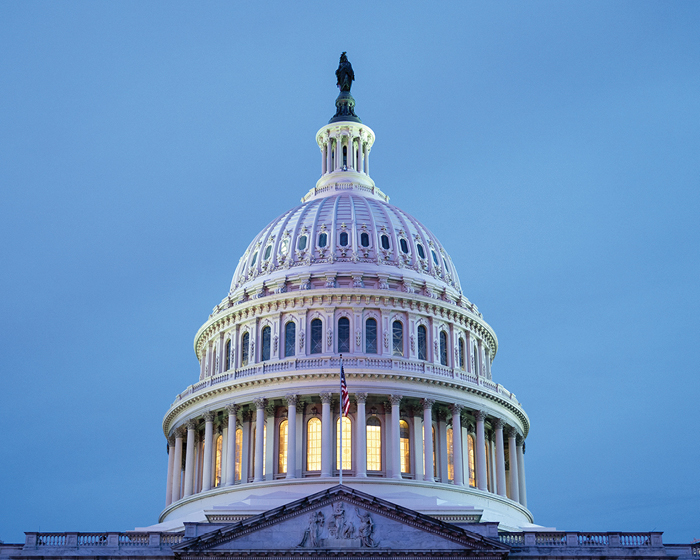Key Takeaways
- President Trump signed the One Big Beautiful Bill Act, expected to be the biggest piece of legislation this year.
- In the coming weeks, lawmakers will lengthen the Congressional record and agencies will begin to write new regulations.
- It won’t be long until Congress must deal with new expirations set into tax law, including the expiration of many new tax breaks in 2028.
- Congress could soon tackle several tax issues unaddressed by the OBBBA, including a potential double tax agreement with Taiwan.
- While the bill receives overwhelming support from Republican lawmakers, the American public at large is wary.
After seven months of negotiations and debate, it is done. Taking full advantage of the July 4th backdrop, President Trump today signed the legislation known as the One Big Beautiful Bill—likely to be the primary legislative accomplishment of his second term, and ensuring that most of the signature law from his first term, the Tax Cuts and Jobs Act, is set to endure permanently. After the Senate passed its version of the bill last week, the U.S. House of Representatives approved it without changes on Thursday.
For lawmakers, government officials, and tax experts it's been a whirlwind of activity and work. But it's definitely not over. Now comes implementation, which can often be the most difficult step.
It's not entirely done in Congress, for starters. Lawmakers can make statements regarding the legislation—"colloquies" and "soliloquies," supposedly made on the House and Senate floors but normally written and submitted for the record—that can influence how it is carried out later. They aren't legally binding, but agencies and courts will often consider those comments when interpreting ambiguities in the statutory text or Congressional intent. There was no conference committee between the two chambers to create a report on the new law that is often the centerpiece of the Congressional record, so those statements could carry extra weight with this bill.
It may not be too long before agencies begin issuing notices and proposed rules to carry out the One Big Beautiful Bill's provisions—especially since many of them took effect retroactively to the beginning of the year. In broad strokes the legislation largely continued current tax policies, but there are still nuances and complexities in the new laws. (In fact, for procedural reasons the law couldn't continue the status quo exactly without small changes.) And it also introduced entirely new tax breaks, like the $25,000 deduction for tips, that include a plethora of new requirements and regulatory questions for the U.S. Treasury Department to tackle.
And it won't be too long until the next tax cliff. Lawmakers succeeded in their goal of making many of the key tax policies permanent, but the bill still included many expirations. The tax breaks on overtime pay, for seniors, tipped income and auto loans all expire in 2029, setting up a challenge for a new Congress and president. But the law also includes many other expirations—mini-cliffs, perhaps—that could provoke legislative action.
So while D.C. can enjoy a brief holiday this weekend and an upcoming summer recess, its work ahead is still not finished.
Recent Tax Pieces:
How Republicans Re-engineered the Tax Code – Andrew Duehren, The New York Times ($):
At the same time, even as Mr. Trump’s return to office pointed the party’s tax agenda in a more populist direction, the new bill is in many ways the apotheosis of a traditionally conservative, supply-side philosophy. Once Mr. Trump signs the legislation, which he is expected to do on Friday, many of the tax cuts made in 2017 will be the law of the land for the foreseeable future, rather than just temporary features.
No One Loves the Bill (Almost) Every Republican Voted For – Russell Berman, The Atlantic ($):
Ultimately, however, its passage through narrow Republican majorities is the most consequential demonstration yet of how tightly Trump controls his party. To fulfill the president’s wishes and meet his arbitrary deadline, some Republicans reneged on pledges to oppose deep social-safety-net cuts, while others abandoned efforts to preserve tax credits that benefited their states and districts. Spending hawks who vowed to uphold some semblance of fiscal responsibility caved rather than stand firm for deeper cuts.
GOP megabill littered with special tax breaks – Brian Faler, Politico:
Many are the sort of narrowly targeted breaks Republicans have long complained are unfair, reward influential special interests and unnecessarily complicate the tax code.
Silicon Valley Rich In Line for $17 Billion Win in GOP Tax Bill – Ben Steverman, Bloomberg News ($):
Federal Tax Policy To Watch In The 2nd Half Of 2025 – Stephen K. Cooper, Law360 Tax Authority:
Lawmakers have other tax priorities that could see action in the next six months, including a year-end tax extenders bill that could ride on the fiscal 2026 budget legislation in December. Congress also could consider legislation to grant permanent tax relief for taxpayers impacted by natural disasters like hurricanes, floods and wildfires. And lawmakers could turn their attention to tax legislation that addresses the double taxation of cross-border investment between the U.S. and Taiwan.
Make a habit of sustained success.



